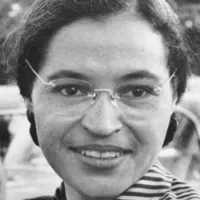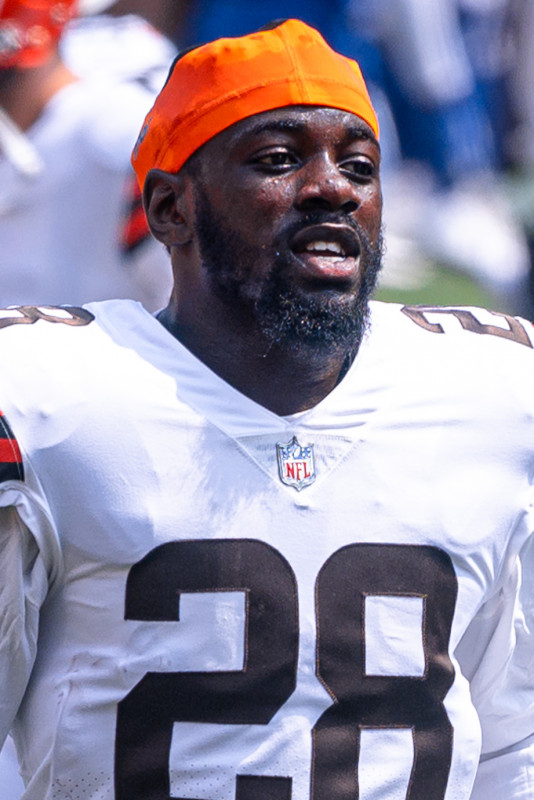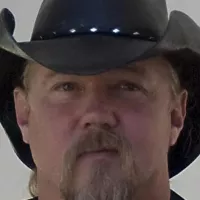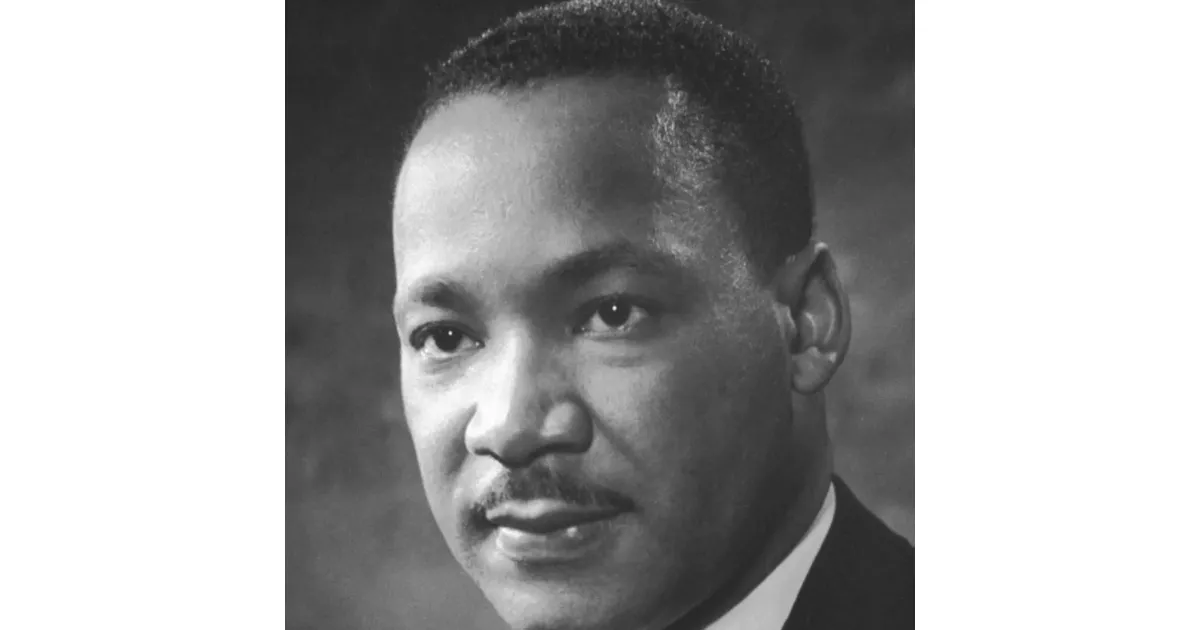Martin Luther King Jr. was a pivotal leader in the American civil rights movement from 1955 until his assassination in 1968. As a Baptist minister and political philosopher, he championed civil rights for people of color through nonviolent resistance and civil disobedience. His activism targeted Jim Crow laws and other discriminatory practices, aiming to achieve equality and justice for all Americans. King's commitment to nonviolence and his powerful rhetoric made him an iconic figure in the fight against racial segregation and discrimination.
1920: Dating of Michael King Sr. and Alberta Williams
In 1920, Michael King Sr. and Alberta Williams began dating.
November 25, 1926: Marriage of Michael King Sr. and Alberta Williams
On November 25, 1926, Michael King Sr. and Alberta Williams married.
January 15, 1929: Michael King Jr.'s Birth in Atlanta
On January 15, 1929, Michael King Jr. was born in Atlanta, Georgia, to Michael King Sr. and Alberta King (née Williams).
January 15, 1929: Birth of Martin Luther King Jr.
On January 15, 1929, Michael King Jr., later known as Martin Luther King Jr., was born. He became a pivotal figure in the civil rights movement.
1931: Michael King Sr. Becomes Pastor
In 1931, Michael King Sr. took over as the senior pastor of the Ebenezer Baptist Church.
August 1934: Name Change to Martin Luther King Sr. and Jr.
In August 1934, after a trip to Berlin, Michael King Sr. changed his name to Martin Luther King Sr., and his son's name to Martin Luther King Jr.
September 1935: Segregated Schooling Begins
In September 1935, at the age of six, Martin King Jr. began attending a segregated school for black children, marking the start of his experience with racial discrimination in education.
1936: Civil Rights March Led by Martin King Sr.
In 1936, Martin Luther King Sr. led hundreds of African Americans in a civil rights march to Atlanta City Hall to protest voting rights discrimination.
1939: Choir Performance at 'Gone with the Wind' Premiere
In 1939, King sang in his church choir dressed as a slave for an all-white audience at the Atlanta premiere of the film "Gone with the Wind".
September 1940: Enrollment at Atlanta University Laboratory School
In September 1940, at age 11, King was enrolled at the Atlanta University Laboratory School for the seventh grade.
May 18, 1941: Death of King's Maternal Grandmother
On May 18, 1941, King's maternal grandmother had a heart attack and died while being transported to a hospital.
1941: Death of Jennie Celeste Parks
In 1941, Jennie Celeste Parks, Alberta's mother, passed away.
1942: Assistant Manager for Atlanta Journal
In 1942, at 13 years old, King became the youngest assistant manager of a newspaper delivery station for the "Atlanta Journal".
April 13, 1944: King's First Public Speech
On April 13, 1944, during his junior year, King delivered his first public speech in an oratorical contest and won. On the bus ride home, he experienced racial discrimination when he and his teacher were forced to stand for white passengers.
June 1944: King's Letter Describing Integrated North
In June 1944, King wrote a letter to his father describing his experiences in the integrated north while working at the Cullman Brothers Tobacco farm in Simsbury, Connecticut, expressing his amazement at the lack of discrimination.
1944: Enrollment at Morehouse College
In 1944, at the age of 15, King passed the entrance examination and was enrolled at Morehouse College as part of a program accepting high school juniors due to the impact of World War II on college enrollment.
1947: King Chooses to Enter the Ministry
In 1947, the 18-year-old King chose to enter the ministry, influenced by Morehouse College's president, Benjamin Mays.
1948: King Graduates from Morehouse College
In 1948, at the age of nineteen, King graduated from Morehouse College with a Bachelor of Arts degree in sociology.
1950: King Intervenes in Alabama Creek School Desegregation
In the late 1950's, tribal leaders contacted King for assistance in the desegregation of Alabama Creek schools. Through his intervention the problem was quickly resolved.
1951: Doctoral Studies at Boston University and Assistant Minister
In 1951, Martin Luther King Jr. began his doctoral studies in systematic theology at Boston University. He also worked as an assistant minister at Boston's historic Twelfth Baptist Church with William Hunter Hester, who was an important influence on King. In Boston, King befriended a small group of local ministers and sometimes guest pastored at their churches, including Michael E. Haynes at Twelfth Baptist Church in Roxbury.
1951: Graduation with Bachelor of Divinity and Doctoral Studies at Boston University
In 1951, Martin Luther King Jr. graduated with a Bachelor of Divinity. He also began his doctoral studies in systematic theology at Boston University and worked as an assistant minister at Boston's historic Twelfth Baptist Church. He applied to the University of Edinburgh for a doctorate in the School of Divinity but ultimately chose Boston instead.
1952: Socialist Economic Views
In a 1952 letter to Coretta Scott, Martin Luther King Jr. expressed that he was much more socialistic in his economic theory than capitalistic.
June 18, 1953: Marriage to Coretta Scott
On June 18, 1953, Martin Luther King Jr. married Coretta Scott on the lawn of her parents' house in Heiberger, Alabama.
1954: Called as Pastor of Dexter Avenue Baptist Church
In 1954, at the age of 25, Martin Luther King Jr. was called as pastor of the Dexter Avenue Baptist Church in Montgomery, Alabama.
March 1955: Claudette Colvin Refuses to Give Up Bus Seat
In March 1955, Claudette Colvin, a fifteen-year-old black schoolgirl in Montgomery, refused to give up her bus seat to a white man, violating Jim Crow laws.
June 5, 1955: King receives his PhD
On June 5, 1955, Martin Luther King Jr. received his PhD. His dissertation, initially supervised by Edgar S. Brightman and later by Lotan Harold DeWolf, was titled 'A Comparison of the Conceptions of God in the Thinking of Paul Tillich and Henry Nelson Wieman.'
December 1, 1955: Rosa Parks' Arrest and Montgomery Bus Boycott
On December 1, 1955, Rosa Parks was arrested for refusing to give up her seat on a city bus, leading to the Montgomery bus boycott, which was urged and planned by Edgar Nixon and led by Martin Luther King Jr.
1955: Montgomery Bus Boycott
In 1955, King oversaw the Montgomery bus boycott, a significant event in the fight against segregation.
1955: Birth of Yolanda King
In 1955, Martin Luther King Jr. and Coretta Scott King had their first child, Yolanda King.
1955: King's Prominence in Civil Rights Movement
In 1955, Martin Luther King Jr. emerged as a prominent leader in the civil rights movement, initiating his activism and leadership.
October 1956: Consideration of Presidential Candidates
In a letter to a civil rights supporter in October 1956, Martin Luther King Jr. mentioned that he had not yet decided whether to vote for Democrat Adlai Stevenson II or Republican Dwight D. Eisenhower at the upcoming 1956 presidential election, but noted that he had always voted the Democratic ticket in the past.
1957: FBI Tracking of King
In 1957, J. Edgar Hoover directed the FBI to track Martin Luther King Jr., due to his suspicion of potential communist influence in social movements.
1957: Birth of Martin Luther King III
In 1957, Martin Luther King Jr. and Coretta Scott King had their second child, Martin Luther King III.
1957: Awarded the Spingarn Medal from the NAACP
In 1957, Martin Luther King Jr. was awarded the Spingarn Medal from the NAACP.
1957: Founding of the Southern Christian Leadership Conference (SCLC)
In 1957, Martin Luther King Jr., along with Ralph Abernathy, Fred Shuttlesworth, Joseph Lowery, and other civil rights activists, founded the Southern Christian Leadership Conference (SCLC) to conduct nonviolent protests for civil rights reform. King led the SCLC until his death.
September 20, 1958: Stabbing in Blumstein's Department Store
On September 20, 1958, while signing copies of his book 'Stride Toward Freedom' in Blumstein's department store in Harlem, Martin Luther King Jr. was stabbed in the chest with a letter opener by Izola Curry, a mentally ill black woman. He underwent emergency surgery and remained hospitalized for several weeks.
1958: Interview on Political Party Alignment
In a 1958 interview, Martin Luther King Jr. expressed his view that neither the Republican nor the Democratic party was perfect and that he was not inextricably bound to either party. He stated that he felt someone must remain in the position of non-alignment, so that he can look objectively at both parties and be the conscience of both.
April 1959: King's Trip to India
In April 1959, King journeyed to India, deepening his understanding of nonviolent resistance and his commitment to America's struggle for civil rights.
September 1959: Speech at the University of Arizona and Visit to Papago Indian Reservation
In September 1959, Martin Luther King Jr. gave a speech at the University of Arizona on nonviolent methods for social change. Following the speech, King visited Southside Presbyterian Church and was inspired by their photos, leading to a visit to the Papago Indian Reservation with Casper Glenn. During his visit in September 1959, he met with tribal leaders and preached at a Presbyterian church near the reservation.
December 1959: Return to Atlanta and Co-Pastorship
In December 1959, after being based in Montgomery for five years, Martin Luther King Jr. announced his return to Atlanta at the request of the SCLC. In Atlanta, King served until his death as co-pastor with his father at the Ebenezer Baptist Church.
1959: Publication of "The Measure of a Man"
In 1959, King published a short book called "The Measure of a Man", which contained his sermons "What is Man?" and "The Dimensions of a Complete Life".
March 1960: Atlanta Student Movement Sit-ins
From March 1960 onwards, the Atlanta Student Movement organized the Atlanta sit-ins to desegregate businesses and public spaces.
May 4, 1960: Arrest for Driving Without a License
On May 4, 1960, Martin Luther King Jr. was cited for 'driving without a license' in Atlanta, after being stopped by police while driving writer Lillian Smith to Emory University. King's Alabama license was still valid, and Georgia law did not mandate any time limit for issuing a local license. He later paid a fine and was unaware that his lawyer agreed to a plea deal that included probation.
1960: King uses concept of "agape"
Before 1960, King also sometimes used the concept of "agape" (brotherly Christian love).
1960: Private Vote for John F. Kennedy
In 1960, Martin Luther King Jr. privately voted for Democratic candidate John F. Kennedy, feeling that Kennedy would make the best president. King never publicly endorsed Kennedy. He mentions this in his autobiography.
March 7, 1961: Agreement on Desegregation of Lunch Counters
On March 7, 1961, a group of Black elders including Martin Luther King Jr. notified student leaders that a deal had been reached: the city's lunch counters would desegregate in fall 1961, in conjunction with the court-mandated desegregation of schools.
November 1961: Formation of the Albany Movement
In November 1961, the Albany Movement, a desegregation coalition, was formed in Albany, Georgia.
December 15, 1961: King's Involvement in the Albany Movement and Arrest
On December 15, 1961, Martin Luther King Jr. first visited Albany, Georgia, and became involved in the Albany Movement. He was swept up in a mass arrest of peaceful demonstrators and declined bail until the city made concessions.
1961: Birth of Dexter Scott King
In 1961, Martin Luther King Jr. and Coretta Scott King had their third child, Dexter Scott King.
March 1962: Return to Old Pueblo and Preaching to Native American Congregation
In March 1962, Martin Luther King Jr. returned to Old Pueblo where he preached again to a Native American congregation. This event in March 1962 highlights King's continued engagement with Native American communities during the civil rights movement.
July 1962: King Jailed in Albany and Released
In July 1962, Martin Luther King Jr. returned to Albany and chose jail over paying a fine. However, after three days, Police Chief Laurie Pritchett discreetly arranged for King's fine to be paid, leading to his release.
1962: Gandhi Society for Human Rights and Call for Executive Order
In 1962, Martin Luther King Jr. served as honorary president of the Gandhi Society for Human Rights. King and the Gandhi Society produced a document that called on President Kennedy to issue an executive order to deliver a blow for civil rights as a kind of Second Emancipation Proclamation.
April 1963: Birmingham Campaign Begins
In April 1963, the SCLC began a campaign against racial segregation and economic injustice in Birmingham, Alabama, using nonviolent but intentionally confrontational tactics.
August 28, 1963: March on Washington for Jobs and Freedom
On August 28, 1963, Martin Luther King Jr., representing the SCLC, was among the leaders of the 'Big Six' civil rights organizations who were instrumental in the organization of the March on Washington for Jobs and Freedom.
December 1963: FBI's Intensive Campaign to 'Neutralize' King
From December 1963 until his death in 1968, Martin Luther King Jr. was the target of an intensive campaign by the Federal Bureau of Investigation to 'neutralize' him as an effective civil rights leader.
1963: FBI Concerns Over Stanley Levison's Influence
Due to the relationship between Martin Luther King Jr. and Stanley Levison, the FBI feared that Levison was working as an "agent of influence" over King, despite its own reports in 1963 indicating that Levison had left the Communist Party.
1963: Native American Contingent in the March on Washington
During the 1963 March on Washington, there was a sizable Native American contingent, including many from South Dakota and from the Navajo nation. This shows that in 1963, King would continue to attract the attention of Native Americans throughout the civil rights movement.
1963: Birth of Bernice King
In 1963, Martin Luther King Jr. and Coretta Scott King had their fourth child, Bernice King.
1963: Collaboration in the March on Washington
In 1963, Martin Luther King Jr. collaborated in the March on Washington, organized by Bayard Rustin. This role was controversial because King acceded to President Kennedy's wishes to change the march's focus. Kennedy, initially against the march due to concerns about civil rights legislation, later sought to ensure its success by mobilizing additional support.
1963: FBI Wiretapping Authorization
In the fall of 1963, the FBI received authorization from Attorney General Robert F. Kennedy to proceed with wiretapping of Martin Luther King Jr.'s phone lines, purportedly due to his association with Stanley Levison. The Bureau informed President John F. Kennedy.
1963: FBI's COINTELPRO Investigation
Starting in 1963, J. Edgar Hoover and the FBI began targeting King with COINTELPRO, investigating him for alleged communist ties and spying on his personal life.
February 6, 1964: Inaugural Speech at the New School
On February 6, 1964, Martin Luther King Jr. delivered the inaugural speech of a lecture series at the New School called "The American Race Crisis", comparing the condition of African Americans to India's untouchables, based on a conversation he had with Jawaharlal Nehru.
March 1964: Joining Forces in St. Augustine, Florida
In March 1964, Martin Luther King Jr. and the SCLC joined forces with Robert Hayling's movement in St. Augustine, Florida, despite its advocacy for armed self-defense. They brought white Northern activists to St. Augustine to protest segregation.
March 18, 1964: Interview with Robert Penn Warren
On March 18, 1964, Martin Luther King Jr. was interviewed by Robert Penn Warren, during which King compared his activism to his father's and discussed the next phase of the civil rights movement and integration.
May 7, 1964: Speaking at Saint Francis College
On May 7, 1964, Martin Luther King Jr. spoke at Saint Francis College's "The Negro and the Quest for Identity" in Biddeford, Maine, addressing the idea of racial superiority and inferiority through nonviolent tactics.
October 14, 1964: King wins Nobel Peace Prize
On October 14, 1964, Martin Luther King Jr. was awarded the Nobel Peace Prize for his efforts in combating racial inequality through nonviolent resistance.
November 4, 1964: Washington Post Article on Invitation to Soviet Union
A Washington Post article dated November 4, 1964, claimed that Martin Luther King Jr. was invited to the Soviet Union, leading the CIA to investigate possible links between King and Communism. Ralph Abernathy, as spokesman for King, refused to comment on the source of the invitation.
November 1964: Support for Scripto Factory Strike
In November 1964, Martin Luther King Jr. supported a labor strike by workers at the Scripto factory in Atlanta, leading the SCLC to organize a nationwide boycott of Scripto products to elevate the labor dispute. The boycott ended on December 24, 1964.
December 1964: Joining Forces with SNCC in Selma, Alabama
In December 1964, Martin Luther King Jr. and the SCLC joined forces with the Student Nonviolent Coordinating Committee (SNCC) in Selma, Alabama, where they had been working on voter registration.
1964: Opposition to Barry Goldwater's Presidential Candidacy
In 1964, Martin Luther King Jr. urged his supporters to vote against Republican Senator Barry Goldwater for president, believing that his election would be a tragedy for the nation and the world.
1964: Impact of "I Have a Dream" Speech
In 1964, Martin Luther King Jr.'s "I Have a Dream" speech was recognized as one of the finest in American oratory. The March on Washington and the speech helped to put civil rights at the top of the agenda of reformers and facilitated the passage of the Civil Rights Act of 1964.
1964: Questionable FBI Recording from the Willard Hotel
In 1964, an audio recording from the Willard Hotel was made by the FBI, and others, including Mrs. King, have said they did not hear Martin's voice on it. The added summary was four layers removed from the actual recording. This supposedly new information comes from an anonymous source in a single paragraph in an FBI report.
1964: Enactment of Civil Rights Act
In 1964, many of the rights that Martin Luther King Jr. organized and led marches for, such as blacks' right to vote, desegregation, and labor rights, were successfully enacted into law with the Civil Rights Act of 1964.
1964: Civil Rights Act of 1964
In 1964, the Civil Rights Act was legislated, achieving pivotal legislative gains in the civil rights movement.
1964: Potential Endorsement for a Second Kennedy Term
Martin Luther King Jr. stated that had President Kennedy lived, he likely would have made an exception to his non-endorsement policy for a second Kennedy term in 1964.
January 2, 1965: Defying Injunction in Selma
On January 2, 1965, Martin Luther King Jr. defied an injunction against gatherings by speaking at Brown Chapel in Selma, Alabama, temporarily halting civil rights activity until King defied it.
March 7, 1965: Bloody Sunday in Selma
On March 7, 1965, the first attempt to march from Selma to Montgomery was aborted due to mob and police violence against the demonstrators. This day became known as Bloody Sunday, which was a major turning point in the effort to gain public support for the civil rights movement.
March 25, 1965: Completion of the March to Montgomery
On March 25, 1965, the march to Montgomery, Alabama, was completed. At the conclusion of the march on the steps of the state capitol, Martin Luther King Jr. delivered a speech that became known as "How Long, Not Long", stating that equal rights for African Americans could not be far away.
1965: Selma to Montgomery Marches
During the 1965 Selma voting rights movement, King helped organize two of the three Selma to Montgomery marches, advocating for voting rights.
1965: American Liberties Medallion Award
In 1965, Martin Luther King Jr. was awarded the American Liberties Medallion by the American Jewish Committee for his exceptional promotion of human liberty.
1965: Thích Nhất Hạnh's Letter to King
In 1965, Thích Nhất Hạnh wrote a letter to Martin Luther King Jr. entitled: "In Search of the Enemy of Man".
1965: Enactment of Voting Rights Act
In 1965, many of the rights that Martin Luther King Jr. organized and led marches for, such as blacks' right to vote, desegregation, and labor rights, were successfully enacted into law with the Voting Rights Act of 1965.
1965: Denial of Communist Connections in Playboy Interview
In a 1965 Playboy interview, Martin Luther King Jr. adamantly denied having any connections to communism, stating that "there are as many Communists in this freedom movement as there are Eskimos in Florida." Hoover replied by calling King "the most notorious liar in the country".
1965: Advocacy for Compensatory Programs
In a 1965 interview conducted for Playboy, Martin Luther King Jr. stated that black Americans and other disadvantaged Americans should be compensated for historical wrongs. He proposed a government compensatory program of $50 billion over ten years to all disadvantaged groups.
August 5, 1966: March through Marquette Park
On August 5, 1966, a march through Marquette Park was met by thrown bottles and screaming throngs. Martin Luther King Jr. negotiated an agreement with Mayor Richard J. Daley to cancel a march to avoid violence. King was hit by a brick during one march.
1966: Moving to Chicago's West Side
In 1966, Martin Luther King Jr. and Ralph Abernathy moved into a building in the slums of North Lawndale on Chicago's West Side to demonstrate their support for the poor.
1966: Margaret Sanger Award
In 1966, Martin Luther King Jr. was awarded the Margaret Sanger Award by the Planned Parenthood Federation of America.
April 4, 1967: "Beyond Vietnam: A Time to Break Silence" Speech
On April 4, 1967, Martin Luther King Jr. delivered a speech titled "Beyond Vietnam: A Time to Break Silence" at the New York City Riverside Church, criticizing the U.S.'s role in the Vietnam War and connecting the war with economic injustice.
April 15, 1967: Speaking at Anti-War March
On April 15, 1967, Martin Luther King Jr. spoke at an anti-war march from Manhattan's Central Park to the United Nations, organized by the Spring Mobilization Committee to End the War in Vietnam. At the U.N. King brought up issues of civil rights and the draft.
November 1967: Honorary Doctorate from Newcastle University
In November 1967, Martin Luther King Jr. received an honorary Doctorate in Civil Law from Newcastle University in the UK, becoming the first African American to be recognized by the institution in this way.
1967: CIA Document on King's Role in Chicago
A 1967 CIA document downplayed Martin Luther King Jr.'s role in the "black militant situation" in Chicago, with a source stating that King "sought at least constructive, positive projects."
1967: SCLC Listed as a Black Nationalist Hate Group
In 1967, J. Edgar Hoover listed the SCLC as a black nationalist hate group, with instructions to exploit organizational and personal conflicts to disrupt, ridicule, or discredit the group.
1967: Increasing Anti-War Efforts
In 1967, James Bevel convinced Martin Luther King Jr. to become more active in the anti-war effort, but King was not fond of the hippie culture developed from the anti-war movement.
1967: Encouragement to Nichelle Nichols to Stay on Star Trek
In 1967, Martin Luther King Jr. convinced actress Nichelle Nichols to remain on the science-fiction television series Star Trek after she planned to leave. He explained that her character signified a future of greater racial cooperation and was an inspiration.
1967: King receives honorary degree from Newcastle University
In 1967, Martin Luther King Jr. made his final visit to the UK to receive an honorary degree from Newcastle University.
1967: King Nominates Nhất Hạnh for Nobel Peace Prize
In 1967, Martin Luther King Jr. nominated Thích Nhất Hạnh for the Nobel Peace Prize, praising his ideas for peace.
January 13, 1968: Call for March on Washington
On January 13, 1968, Martin Luther King Jr. called for a large march on Washington against "one of history's most cruel and senseless wars".
February 4, 1968: King's Last Sermon Played at Funeral
On February 4, 1968, at his widow's request, Martin Luther King Jr.'s last sermon at Ebenezer Baptist Church was played at his funeral.
March 29, 1968: Support for Memphis Sanitation Workers
On March 29, 1968, Martin Luther King Jr. went to Memphis, Tennessee, in support of the black sanitation workers, who were represented by American Federation of State, County and Municipal Employees (AFSCME) Local 1733. The workers were striking for higher wages and better treatment.
April 4, 1968: Assassination of Martin Luther King Jr.
On April 4, 1968, Martin Luther King Jr. was assassinated, marking a tragic end to his leadership in the civil rights movement.
1968: World Constituent Assembly Convened
As a result of Martin Luther King Jr. signing an agreement to convene a convention for drafting a world constitution, in 1968 a World Constituent Assembly convened to draft and adopt the Constitution for the Federation of Earth.
1968: Congress passed the Civil Rights Act of 1968
Days after King's assassination, in 1968, Congress passed the Civil Rights Act of 1968. Title VIII of the Act, commonly known as the Fair Housing Act, prohibited discrimination in housing. Also in 1968, teacher Jane Elliott conducted her first "Blue Eyes/Brown Eyes" exercise to help students understand King's death related to racism.
1968: FBI's Intensive Campaign to 'Neutralize' King
From December 1963 until his death in 1968, Martin Luther King Jr. was the target of an intensive campaign by the Federal Bureau of Investigation to 'neutralize' him as an effective civil rights leader.
1968: Consideration of Presidential Run
In 1968, Allard K. Lowenstein, William Sloane Coffin and Norman Thomas attempted to persuade Martin Luther King Jr. to run against President Johnson in the 1968 presidential election, but King decided against it.
1968: Organizing the "Poor People's Campaign"
In 1968, Martin Luther King Jr. and the SCLC organized the "Poor People's Campaign" to address issues of economic justice, assembling a multiracial army of the poor to march on Washington.
1968: Views on Presidential Candidates
In 1968, Martin Luther King Jr. believed Robert F. Kennedy would make for a good president, but also believed that he wouldn't beat Johnson in the 1968 Democratic Party presidential primaries. He also expressed support for the possible presidential candidacies of Republicans Nelson Rockefeller, George Romney and Charles Percy.
1968: King's Assassination in Memphis
In 1968, Martin Luther King Jr. was assassinated in Memphis, Tennessee, while planning the Poor People's Campaign.
1968: Civil Rights Act of 1968 spurred by assassination
In 1968, Martin Luther King Jr.'s assassination helped to spur the enactment of the Civil Rights Act of 1968.
1968: Fair Housing Act of 1968
In 1968, the Fair Housing Act was legislated, achieving pivotal legislative gains in the civil rights movement.
1968: King's book 'Why We Can't Wait'
In King's 1968 book Why We Can't Wait he writes about his support for Native American rights.
1968: Memphis Police Surveillance and King's Assassination
In the spring of 1968, the Memphis Police Department spied on Martin Luther King Jr. as he supported striking sanitation workers. Police officers were stationed in a fire station across from the Lorraine Motel, next to James Earl Ray's boarding house, to keep King under surveillance. The antagonism between King and the FBI, the lack of an all points bulletin to find the killer, and the police presence nearby led to speculation that the FBI was involved in the assassination.
March 10, 1969: James Earl Ray confesses to King's murder
On March 10, 1969, James Earl Ray confessed to the murder of Martin Luther King Jr., though he recanted this confession three days later. He pleaded guilty to avoid the death penalty and was sentenced to a 99-year prison term.
December 30, 1969: Martin Luther King Fund and Foundation Set Up
On December 30, 1969, The Martin Luther King Fund and Foundation in the UK was set up as a charity following King's assassination and Coretta King's visit to the UK.
1970: Formation of International Personnel (IP)
In 1970, International Personnel (IP), an employment agency, was formed out of the Martin Luther King Fund and Foundation's base in Balham to find employment for professionally qualified black people.
1971: Establishment of Martin Luther King Jr. Day
Beginning in 1971, Martin Luther King Jr. Day was established as a holiday in cities and states, honoring his legacy.
1971: Cities and states start establishing annual holidays to honor King
Beginning in 1971, cities and states started establishing annual holidays to honor Martin Luther King Jr.
1971: Grammy Award for Best Spoken Word Recording
In 1971, Martin Luther King Jr. posthumously won a Grammy Award for Best Spoken Word Recording for "Why I Oppose The War In Vietnam".
1975: Church Committee Investigation Findings
In 1975, the Church Committee, a U.S. Congress investigation, found that from December 1963 until his death in 1968, Martin Luther King Jr. was the target of an intensive campaign by the Federal Bureau of Investigation to 'neutralize' him as an effective civil rights leader.
1976: FBI Acknowledgment of No Evidence of Communist Involvement
By 1976, the FBI acknowledged that it had not obtained any evidence that Martin Luther King Jr. himself or the SCLC were actually involved with any communist organizations, despite extensive surveillance.
1977: Sealing of FBI Surveillance Recordings and Transcripts
In 1977, Judge John Lewis Smith Jr. ordered the recorded audiotapes and written transcripts resulting from the FBI's electronic surveillance of Martin Luther King Jr. between 1963 and 1968 to be sealed from public access in the National Archives until 2027.
1977: Posthumous Presidential Medal of Freedom
In 1977, Martin Luther King Jr. was posthumously awarded the Presidential Medal of Freedom, honoring his legacy.
1977: Reinterment at the Martin Luther King Jr. National Historical Park
In 1977, Martin Luther King Jr.'s remains were transferred to a tomb on the site of the Martin Luther King Jr. National Historical Park.
November 2, 1983: Federal Holiday Created
On November 2, 1983, President Ronald Reagan signed a bill creating a federal holiday to honor Martin Luther King Jr.
January 20, 1986: First Observance of Martin Luther King Jr. Day
Observed for the first time on January 20, 1986, the Martin Luther King Jr. Day federal holiday took place.
1986: First Federal Observance of Martin Luther King Jr. Day
In 1986, the federal holiday honoring Martin Luther King Jr. was first observed, solidifying his national recognition.
1989: Ralph Abernathy's autobiography
In 1989, Ralph Abernathy's autobiography "And the Walls Came Tumbling Down" was released where he stated that King had a "weakness for women".
October 1991: Academic Inquiry on Dissertation Plagiarism
In October 1991, an academic inquiry concluded that portions of Martin Luther King Jr.'s doctoral dissertation had been plagiarized. Despite this finding, the committee recommended that his doctoral degree not be revoked, as the dissertation still made an intelligent contribution to scholarship.
1992: Holiday observation following 1992 George H. W. Bush proclamation
Following President George H. W. Bush's 1992 proclamation, the Martin Luther King Jr. holiday is observed on the third Monday of January each year.
November 18, 1996: Foundation Removed from Charity Commission List
On November 18, 1996, The Martin Luther King Fund and Foundation was removed from the Charity Commission list because it had ceased to exist.
1997: Dexter Scott King Meets with James Earl Ray
In 1997, King's son Dexter Scott King met with James Earl Ray and publicly supported Ray's efforts to obtain a new trial regarding the assassination of Martin Luther King Jr.
1998: James Earl Ray dies
In 1998, James Earl Ray, the confessed assassin of Martin Luther King Jr., died at age 70 while still maintaining his innocence regarding the assassination.
1999: New Hampshire recognizes Martin Luther King Jr. Day
In 1999, New Hampshire was one of the last states to recognize the Martin Luther King Jr. Day holiday.
1999: Wrongful Death Lawsuit Ruling
In 1999, a wrongful death lawsuit ruling implicated unspecified "government agencies" as co-conspirators in King's assassination.
January 17, 2000: Martin Luther King Jr. Day Observed in All Fifty U.S. States
On January 17, 2000, for the first time, Martin Luther King Jr. Day was officially observed in all fifty U.S. states.
2000: Person of the Century poll
In 2000, Martin Luther King Jr. was voted sixth in an online "Person of the Century" poll by Time Magazine.
2000: U.S. Department of Justice Investigation
In 2000, the U.S. Department of Justice completed its investigation into Loyd Jowers' claims regarding the assassination of Martin Luther King Jr. and found no evidence of conspiracy. The investigation report recommended no further investigation unless new reliable facts are presented.
2002: Ronald Denton Wilson's Claim
In 2002, The New York Times reported that church minister Ronald Denton Wilson claimed his father, Henry Clay Wilson, assassinated Martin Luther King Jr. Wilson provided no evidence to back up his claims.
2003: Posthumous Congressional Gold Medal
In 2003, Martin Luther King Jr. was posthumously awarded the Congressional Gold Medal, recognizing his contributions.
2003: Pepper publishes book about MLK assassination
In 2003, Pepper published a book about the investigation and trial of James Earl Ray in his bid for a trial concerning the death of Martin Luther King Jr.
2004: Jesse Jackson statement
In 2004, Jesse Jackson made a statement regarding the death of Martin Luther King Jr.
2004: Congressional Gold Medal Awarded
In 2004, Martin Luther King Jr. and his wife, Coretta Scott King, were awarded the Congressional Gold Medal.
2006: Coretta Scott King's Death and Establishment of the King Center
In 2006, King's wife, Coretta Scott King, passed away. In that same year, she had established the King Center in Atlanta, Georgia, dedicated to preserving his legacy.
2007: Yolanda King's Death
In 2007, King's daughter Yolanda King, a motivational speaker, author and founder of Higher Ground Productions, passed away.
2008: Jerry Ray Interview
In 2008, Jerry Ray, the younger brother of James Earl Ray, claimed in an interview with CNN that James was smart and was sometimes able to get away with armed robbery.
2010: Martin Luther King III Becomes President of the King Center
In 2010, Martin Luther King III became the president of the King Center.
2011: Dedication of the Martin Luther King Jr. Memorial
In 2011, the Martin Luther King Jr. Memorial on the National Mall in Washington, D.C., was dedicated, commemorating his contributions.
2012: Bernice King Becomes CEO of the King Center
In 2012, King's youngest child, Bernice King, became the CEO of the King Center.
2014: Release of Full FBI Letter and Yale Professor's Analysis
Upon the release of the full FBI letter in 2014, Yale history professor Beverly Gage noted in a New York Times article that the claim that the FBI "simply meant to push King out, not induce suicide" was a possibility. Gage points out that another uncovered portion of the note praises "older leaders" like the N.A.A.C.P. executive director Roy Wilkins, urging King to step aside and let other men lead the civil rights movement."
April 20, 2016: Redesign of U.S. Currency
On April 20, 2016, Treasury Secretary Jacob Lew announced that the $5, $10, and $20 bills would undergo redesign prior to 2020, including images from King's "I Have a Dream" speech on the reverse of the $5 bill.
September 9, 2016: King Canonized by Holy Christian Orthodox Church
On September 9, 2016, Martin Luther King Jr. was canonized by Archbishop Timothy Paul of the Holy Christian Orthodox Church. His feast day was set as April 4, the date of his assassination.
2017: Declassification of CIA Files
In 2017, CIA files were declassified, revealing that the agency was investigating possible links between Martin Luther King Jr. and Communism following a 1964 Washington Post article.
2017: Statue of King Unveiled at Newcastle University
In 2017, Newcastle University unveiled a bronze statue of Martin Luther King Jr. to celebrate the 50th anniversary of his honorary doctorate ceremony. The Students Union also voted to rename their bar "Luther's".
May 2019: Emergence of FBI File Alleging King's Involvement in Sexual Assault
In May 2019, an FBI file emerged alleging that Martin Luther King Jr. "looked on, laughed and offered advice" as one of his friends raped a woman. Historians have dismissed this evidence as highly unreliable.
2020: Redesign of U.S. Currency
By 2020, the $5, $10, and $20 bills were scheduled to be redesigned, including images from King's "I Have a Dream" speech on the reverse of the $5 bill.
2024: Death of Dexter Scott King
In 2024, Dexter Scott King, son of Martin Luther King Jr., passed away.
2024: Dexter King's Death
In 2024, King's son Dexter King, who served as the chairman of the King Center until 2010, passed away.
2024: Inflation Adjustment
In July 1962, Martin Luther King Jr. was given the option of forty-five days in jail or a $178 fine (equivalent to $1,900 in 2024).
January 23, 2025: Declassification of Assassination Records
On January 23, 2025, President Donald Trump signed an Executive Order declassifying the records concerning the assassination of Martin Luther King Jr.
2027: Scheduled Release of FBI Surveillance Recordings
In 1977, Judge John Lewis Smith Jr. ordered the recorded audiotapes and written transcripts resulting from the FBI's electronic surveillance of Martin Luther King Jr. between 1963 and 1968 to be sealed from public access in the National Archives until 2027.
2027: Declassification of tapes
In 2027, tapes that could either confirm or deny allegations are scheduled to be declassified.
Mentioned in this timeline

Donald John Trump is an American politician media personality and...

Jesse Jackson is an American civil rights activist politician and...

John F Kennedy JFK was the th U S President...

Rosa Parks an American civil rights activist is renowned for...
The Union of Soviet Socialist Republics USSR existed from to...
India officially the Republic of India is a South Asian...
Trending
44 minutes ago Alabama Basketball Faces LSU: A Crucial Road Matchup and Maturity Test Looms

44 minutes ago Jeremiah Owusu-Koramoah's NFL future uncertain due to possible career-ending injury at 26.

2 hours ago Kelvin Sampson's Coaching Philosophy and Houston Cougars' SLAM Magazine Cover

2 hours ago Trace Adkins Hints at Retirement with 2026 Tour Potentially Being His Last

2 hours ago Urgent search: 3-year-old girl missing in Avondale, Amber Alert issued for safe return.

2 hours ago Javonte Williams Signs 3-Year, $24 Million Contract Extension with the Dallas Cowboys
Popular

Jesse Jackson is an American civil rights activist politician and...

Barack Obama the th U S President - was the...

Ken Paxton is an American politician and lawyer serving as...

Bernie Sanders is a prominent American politician currently serving as...
Randall Adam Fine is an American politician a Republican who...

Michael Joseph Jackson the King of Pop was a highly...





